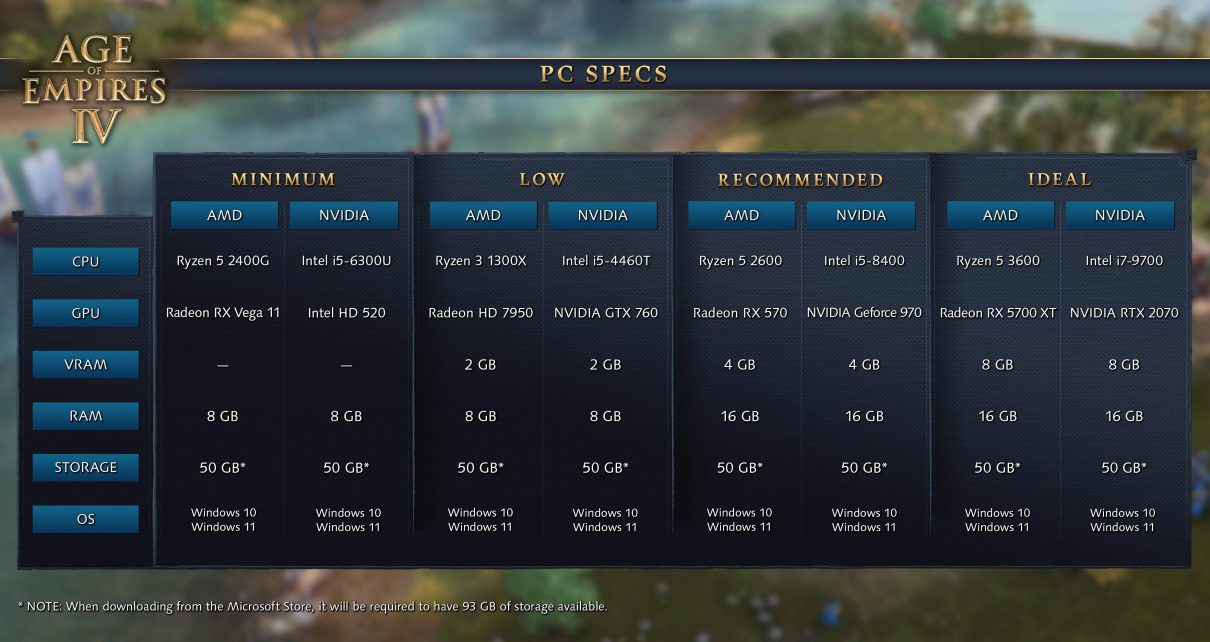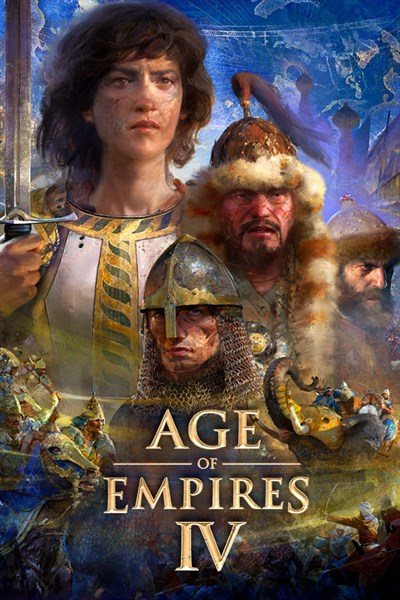For nearly 25 years, the Age of Empires series has been delighting millions of real-time strategy fans around the world. With a focus on real historical events dating all the way back to the Stone Age, the series tasks players with determining how those events played out, allowing them to experience history as it was or create a new history of their own. It’s clearly resonated with fans, selling millions of copies over the years.
With that in mind, the teams at developer World’s Edge and Relic Entertainment knew that they had big shoes to fill in developing the upcoming Age of Empires IV. However, they knew it wasn’t enough just to create a game that not only checked all the requisite real-time strategy boxes but also delivered an experience that exceeded fans’ expectations. The teams knew that they needed to go above and beyond to let more people than ever play.
Enter Min Spec Mode, which will allow players on older and lower-powered machines to experience Age of Empires IV. This mode is triggered via a combination of in-game settings, which are made with help from an auto-detection system when you first launch the game and can be referenced or tweaked from the settings menu.
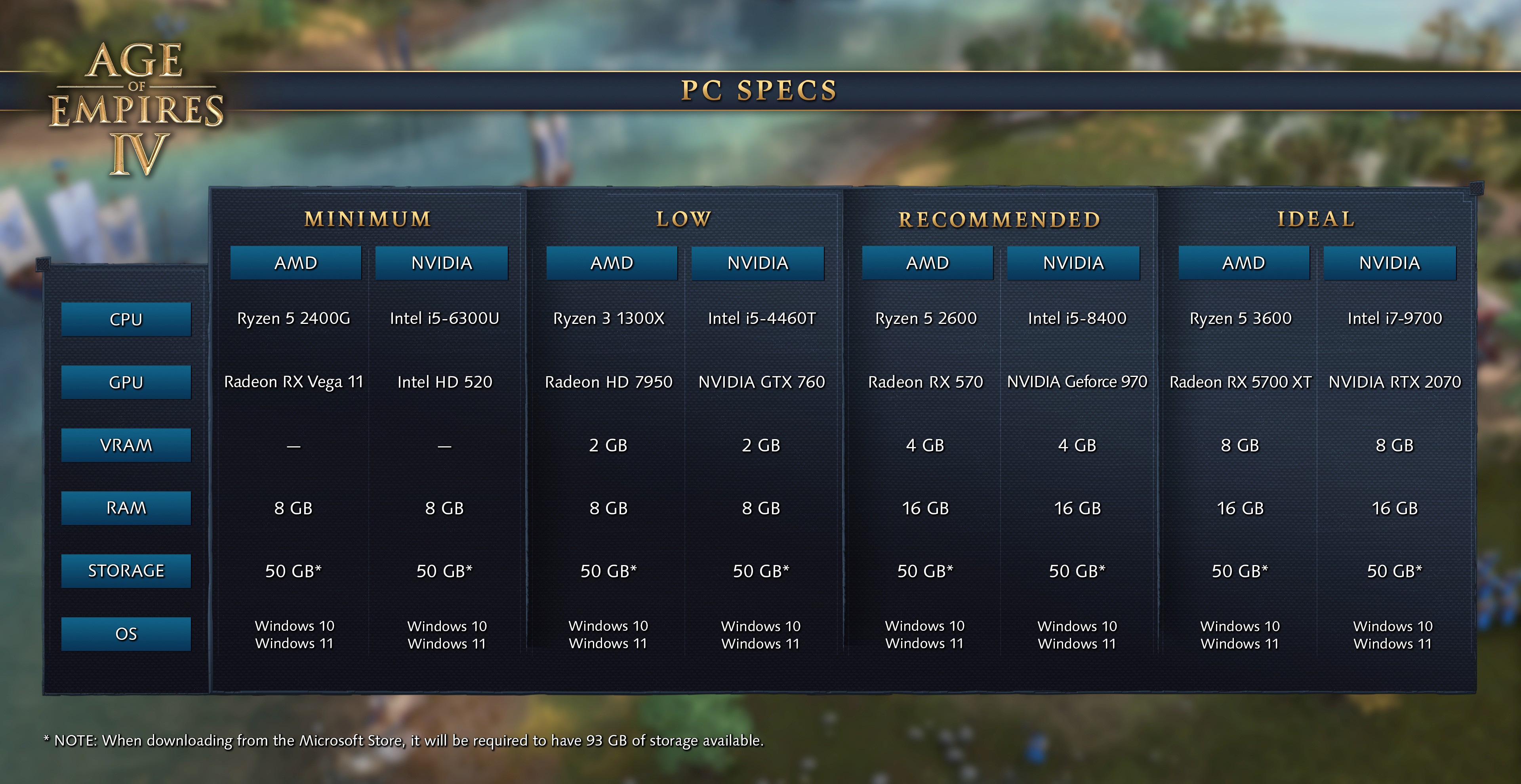
“When looking to bring this new game to the franchise, we knew we needed to support a diverse set of PC configuration,” said Michael Mann, Executive Producer at World’s Edge. “Even looking forward to the next few years, we expect 50% or more of our player base will be playing on machines that use the low spec renderer.”
A large part of that player base is still playing games like Age of Empires II and Age of Empires III, which were released in 1999 and 2005, respectively. Age of Empires is also a very global franchise, and machine specs vary widely across the world. Some regions that are very active in playing the Age franchise also tend to have lower spec’d machines for a variety of reasons. Southeast Asia and Latin America are two regions that have very passionate and still-thriving Age of Empires communities, and the developers wanted to make sure that the people who still play Age of Empires II and Age of Empires III today can enjoy Age of Empires IV.
During their technical planning for Age of Empires IV, the team found that a significant number of the Age of Empires community still play those earlier Age of Empires games on laptops or on older desktop PCs with discreet and integrated Graphics Processing Units (GPUs). Since they wanted to reach the largest player base possible, that meant that they had to take both configurations into account and design for GPUs that have their own RAM, as well as ones that utilize some of the system’s RAM.
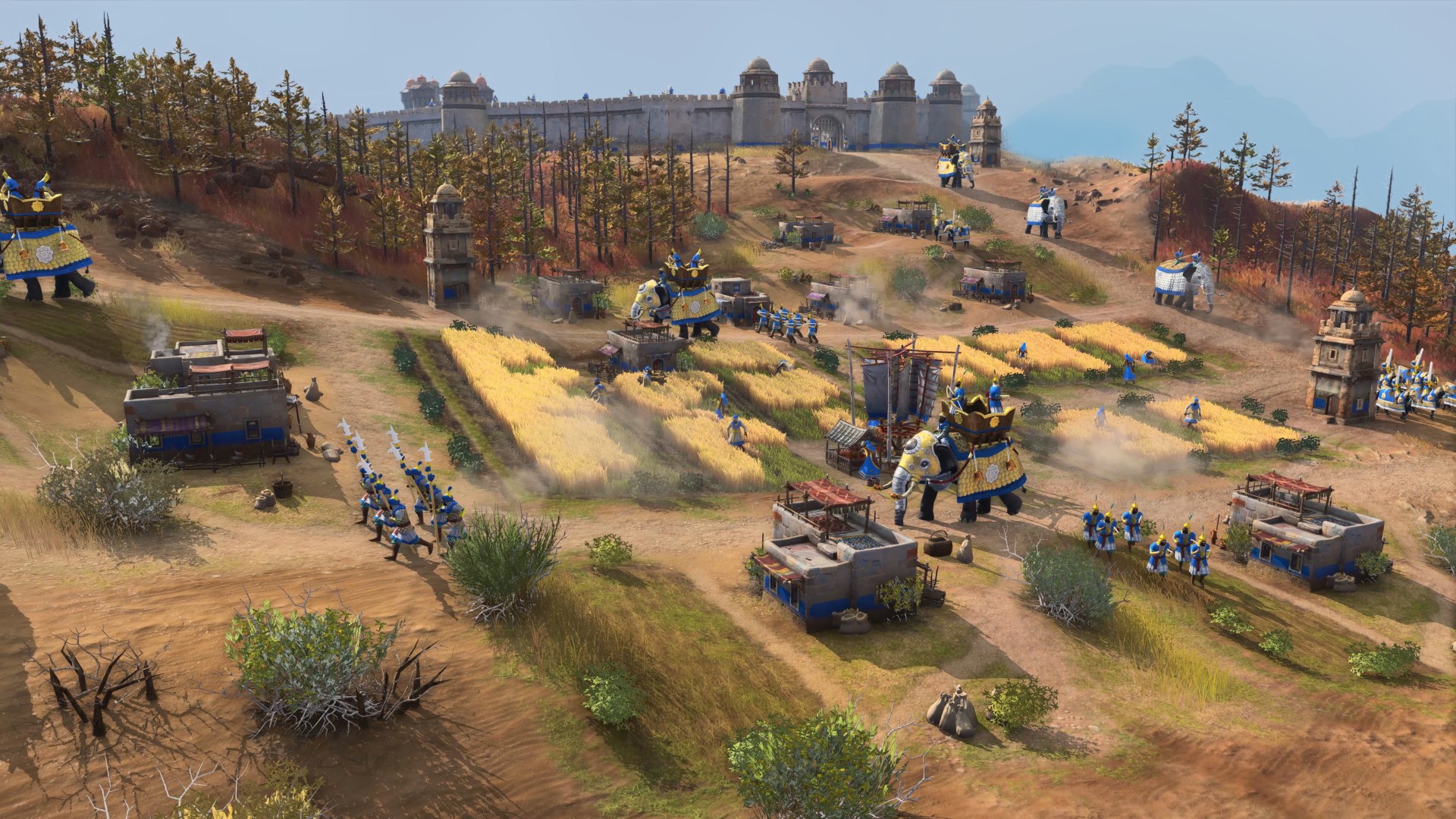
The former was much easier to design for, since they had a good idea of how much RAM a given discreet GPU would have at its disposal. Integrated GPUs, on the other hand, were more challenging to design and plan for, since there were more variables that had be accounted for to ensure that the GPU usage didn’t crash the whole system. To keep that from happening, they built a low spec renderer.
Of course, doing so was not easy, at least at first. Their biggest technical hurdle? “Time. Just time,” said Joel Pritchett, Technical Director at World’s Edge. “The low spec renderer is equivalent to what we would have built for an Xbox 360. We know how to do that. We just needed time to do it right. Art, on the other hand, had different challenges, such as building multiple asset sets for example.”
Naturally, there are trade-offs for playing the game in Min Spec mode. As with most PC games, Age of Empires IV has a Recommended Spec that the development teams at Relic and World’s Edge suggest as the ideal way for everyone to experience the game. Examples of what you can expect while playing the game using a machine with these specs include high unit counts, high resolution models, lots of detailed explosions, and 8 player battles.
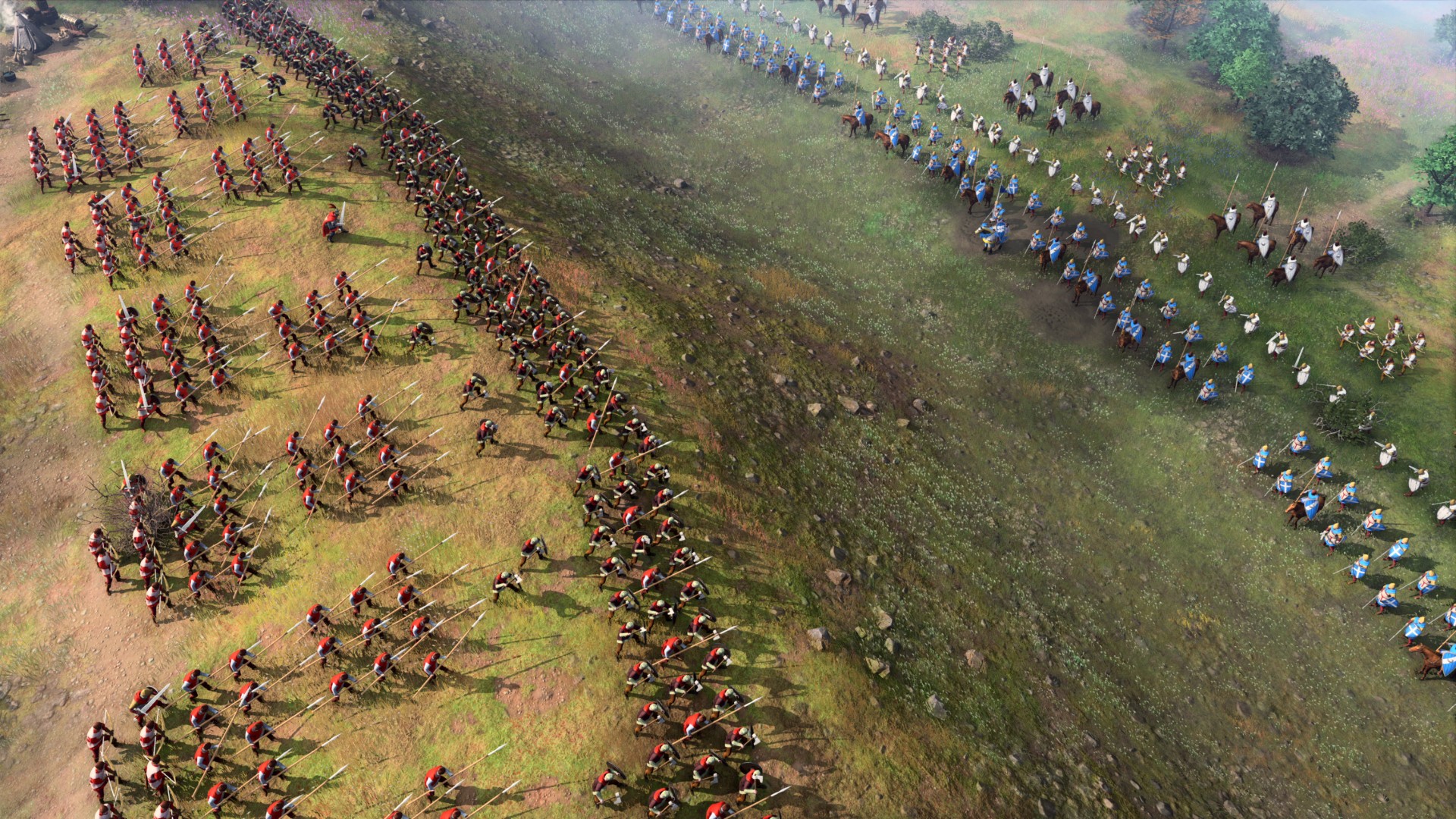
Given that the Min Spec Mode was designed for laptops and desktops using integrated GPUs, the most important thing for the developers was ensuring that fans could play the campaign with lower resolution textures, less destruction, simpler lighting, less visual flourish, and 4 player battles. You won’t be getting some of the added spectacle of larger-player battles or high-end image and texture quality, but you’ll still be getting a great one without having to spend a bunch of money upgrading your gaming desktop or laptop. It’s a trade-off that even players with more powerful machines might want to try. “It’s worth noting that some of our competitive testers preferred the low spec renderer because its visually clearer and you get a better framerate,” said Pritchett. “So, you may want to try out different settings when you play for the first time.”
Min Spec Mode is not all the team has done to make the game more accessible. “With us going live on day one in Game Pass for PC, we wanted to ensure a broad support of hardware for new users to be able to enjoy Age IV. We’ve kept existing and new players in mind throughout development,” said Mann. “Not just in terms of their ability to play on their machines but with game features like our tutorial and Art of War challenge missions.”
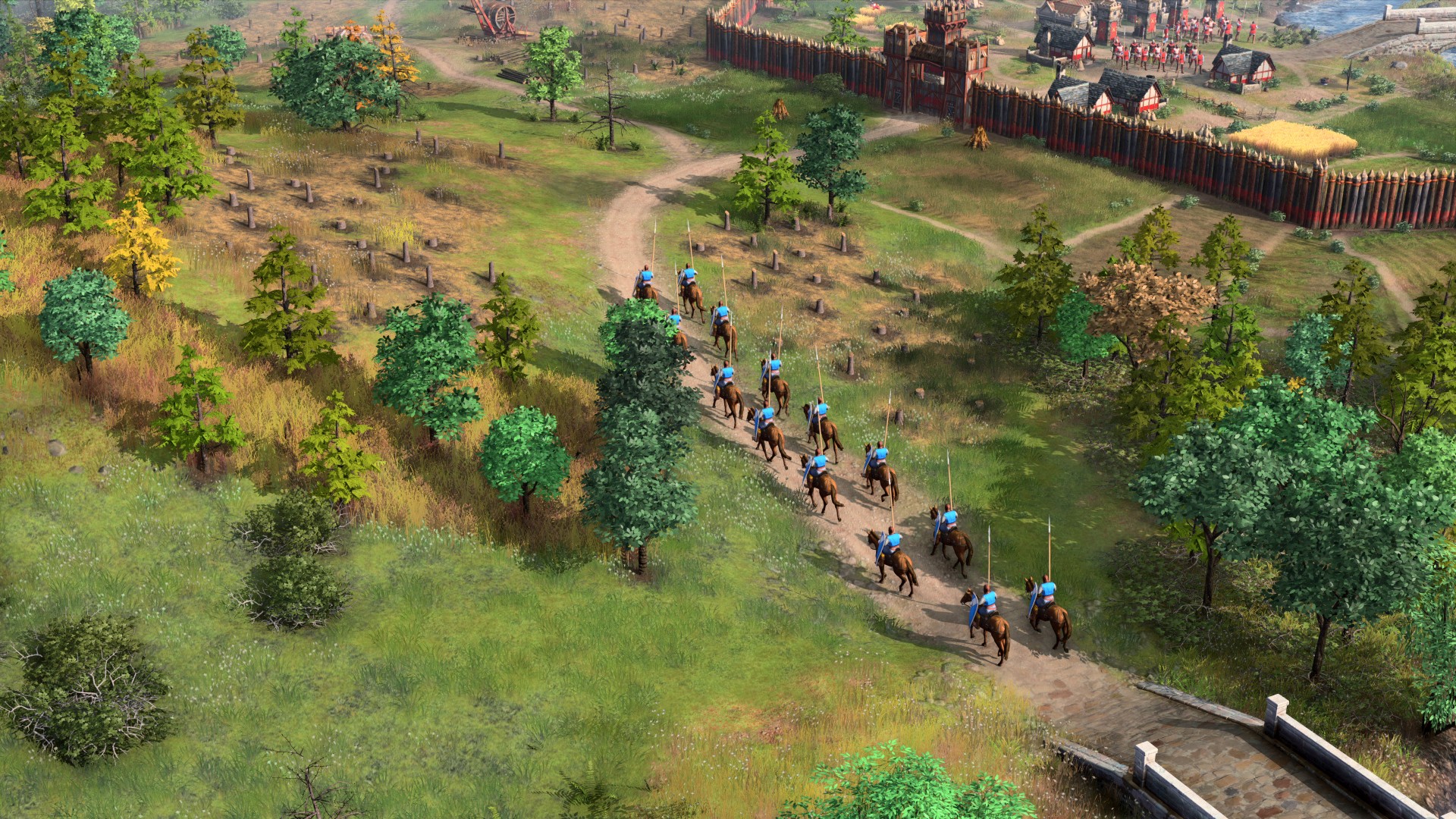
If this team has shown us anything, though, it’s that they’re never satisfied and are always looking for ways to improve player experiences. They’ve made dozens (if not hundreds) of tweaks and changes to the game during private and public betas over the last few years. Most importantly, they’re ready to hit the ground running next week when the game launches to ensure that everyone has a great experience.
“We’re going to be looking for feedback as soon as we launch on all elements of the game, so we want to hear about play experiences. We’ve also got our Customer Support team on standby to help every player get any help they may need to get up and running,” said Mann. “We just can’t wait for the 28th and we can’t wait for people to start playing Age of Empires IV.”

Age of Empires IV Pre-Order
Xbox Game Studios
Related:
Age of Empires IV Hotkeys Revealed
Next Week on Xbox: October 25 to 29
Coming Soon to Xbox Game Pass: Age of Empires IV, Dragon Ball FighterZ, and More


